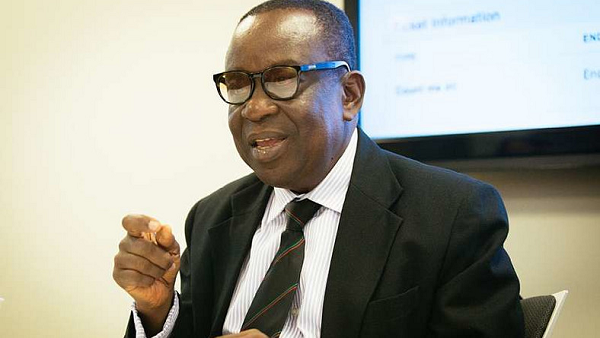
National Security Ministry cautions youth about extremism
The Ministry of National Security has cautioned the youth, particularly students to be careful about whom they associate with in the wake of growing threats of terrorism and violent extremism in the sub-region.
At an engagement with the Political Science Students’ Association (POSSA) of the University of Ghana, the Director of the Counterterrorism Fusion Centre at the Ministry of National Security, Dr Col Timothy Ba-Taa-Banah, said extremist groups were beginning to view the youth, particularly students, as raw materials or conduits for violent causes.
He said the increasing rate of graduate unemployment, coupled with financial hardships on the continent, were making the youth more susceptible to radicalisation and recruitment.
Social media, violent extremism
Dr Col Ba-Taa-Banah said the ability of violent extremist organisations to transcend geographical boundaries had been made possible by the Internet and the use of social media.
He said the Internet now afforded such groups a veritable playground for spotting and assessing individuals and for sharing radical thoughts and beliefs.
“Physical contact with extremist organisations has diminished over time because social media provides the youth with a platform for identifying violent extremists and for gaining an appreciation or understanding of their principles,” Dr Col Ba-Taa-Banah explained.
He, therefore, urged the students to be particular about whom they engaged with on the Internet, adding that fighting terrorism was a shared responsibility for which all actors had to be involved.
Soft negotiations
During a panel discussion, the Executive Secretary of the National Peace Council (NPC), George Amoh, called on students and the youth to adopt the use of negotiations to solve problems, stressing that resorting to violent activities mostly cost the public peace, lives and property.
He added that the council was also committed to play a role in the eradication of the violent extremism in universities and educational institutions in the country.
Mr Amoh said these were being done through soft approaches such as identifying unacceptable attitudes in society and finding ways to cause behavioural change through education, awareness and collaborations with state institutions such as the National Commission for Civic Education (NCCE).
Tackling extremism
An international gender consultant and board member of the National Peace Council, Joana Adzoa Opare, said the country, in the last two decades, had made tremendous progress at peace and democratic governance, which had manifested in dividends such as the conduct of periodic elections, peaceful power alternations, respect for human rights, free media and the rule of law.
She, however, said recent happenings in the sub-region had heightened threats to the country and encouraged discourse within the security circles, underscoring the importance and urgency needed to escalate the national commitment to prevent such threat from spilling into the country.
“We must counter the extremist ideology by standing up and promoting our shared values, taking on extremism in all its forms — both violent and non-violent.
We need universities to stand up against extremism, broadcasters to give platforms to different voices and internet service providers to do their bit too,” Mrs Opare added.
